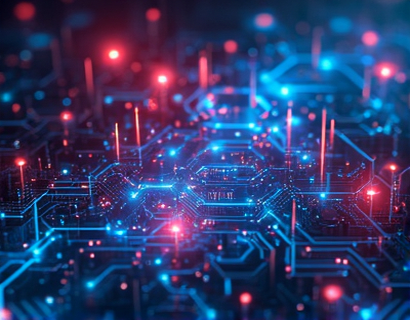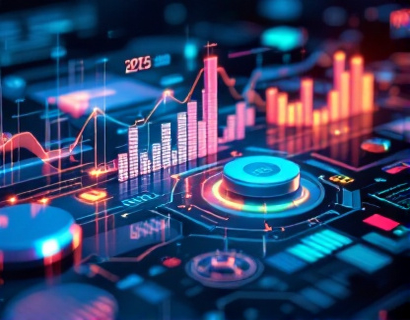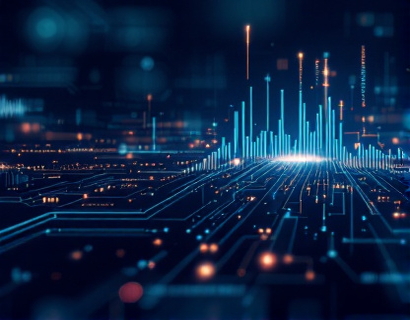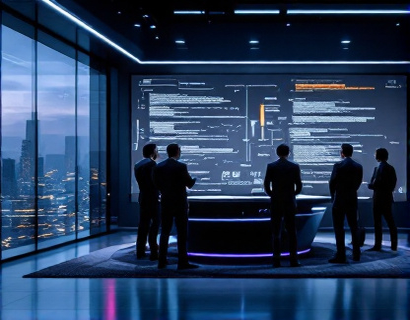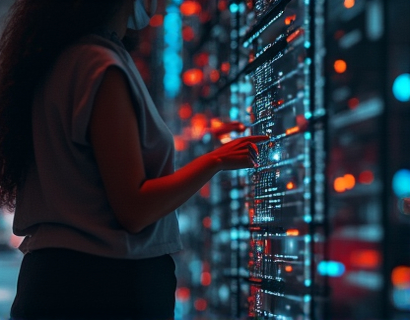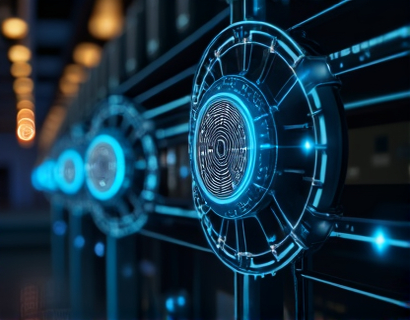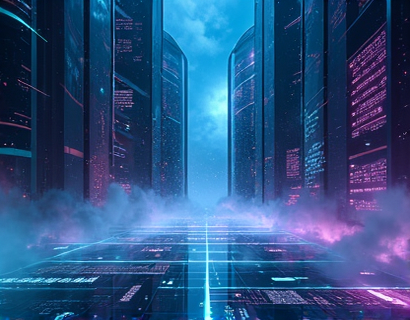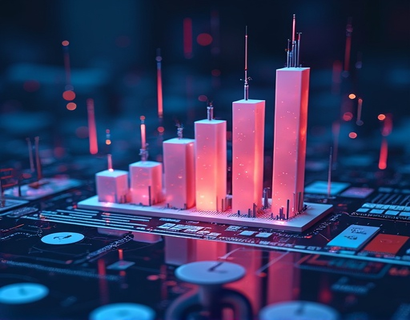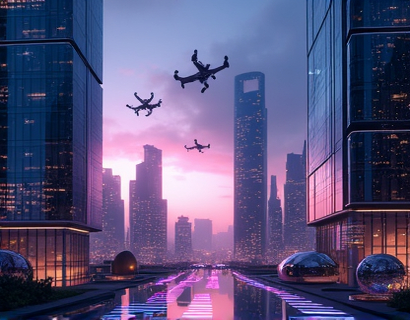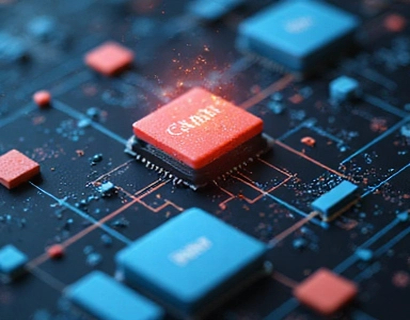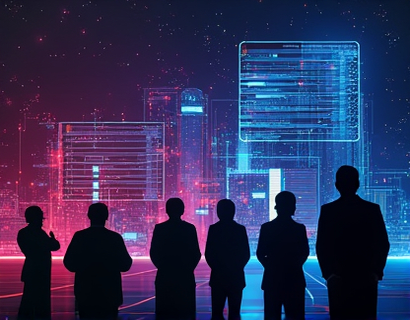AI-Powered Marketing Agents: Revolutionize Your Business Growth with Intelligent Automation
In today's fast-paced digital landscape, businesses are constantly seeking innovative solutions to enhance their marketing strategies and drive growth. One of the most transformative advancements in recent years is the emergence of AI-powered marketing agents. These intelligent systems leverage advanced algorithms and machine learning to automate and optimize marketing efforts, allowing businesses to focus on their core activities while maximizing customer engagement and return on investment (ROI).
The Rise of AI in Marketing
The integration of artificial intelligence in marketing is not just a trend; it is a fundamental shift in how businesses operate. AI technologies can analyze vast amounts of data, identify patterns, and make predictions that were previously impossible for human marketers to achieve. This capability enables businesses to tailor their marketing strategies to meet the specific needs and preferences of their target audience.
Understanding AI-Powered Marketing Agents
AI-powered marketing agents are sophisticated tools designed to automate various marketing tasks. These agents can perform functions such as data analysis, customer segmentation, content creation, and campaign management. By utilizing machine learning algorithms, these agents continuously improve their performance based on real-time data, ensuring that marketing strategies remain effective and relevant.
Key Features of AI Marketing Agents
- Data Analysis: AI agents can process and analyze large datasets quickly, providing insights that help businesses understand customer behavior and market trends.
- Customer Segmentation: By identifying distinct customer segments, AI agents enable businesses to create targeted marketing campaigns that resonate with specific audiences.
- Content Creation: AI can generate personalized content, including emails, social media posts, and blog articles, tailored to the interests of individual customers.
- Campaign Optimization: AI agents can monitor the performance of marketing campaigns in real-time, making adjustments to improve effectiveness and ROI.
- Predictive Analytics: By analyzing historical data, AI agents can predict future customer behavior, allowing businesses to proactively address customer needs.
Benefits of Using AI-Powered Marketing Agents
Implementing AI-powered marketing agents offers numerous benefits for businesses looking to enhance their marketing efforts and drive growth.
1. Enhanced Customer Engagement
AI marketing agents can analyze customer interactions and preferences, enabling businesses to deliver personalized experiences. By understanding what customers want, businesses can create targeted campaigns that resonate with their audience, leading to higher engagement rates.
2. Increased Efficiency
Automation of repetitive marketing tasks allows businesses to save time and resources. AI agents can handle tasks such as data entry, email marketing, and social media management, freeing up human marketers to focus on strategic initiatives.
3. Improved ROI
By optimizing marketing campaigns based on real-time data, AI agents can significantly improve ROI. Businesses can allocate their marketing budgets more effectively, ensuring that resources are directed toward the most profitable channels and strategies.
4. Data-Driven Decision Making
AI-powered marketing agents provide businesses with actionable insights derived from data analysis. This data-driven approach enables marketers to make informed decisions, reducing the reliance on guesswork and intuition.
5. Scalability
As businesses grow, their marketing needs become more complex. AI agents can easily scale to accommodate increased demand, ensuring that marketing efforts remain effective regardless of business size.
Implementing AI Marketing Agents in Your Business
Integrating AI-powered marketing agents into your business requires careful planning and execution. Here are some steps to consider:
1. Define Your Goals
Before implementing AI marketing agents, it is essential to define your marketing goals. Determine what you want to achieve, whether it is increasing brand awareness, generating leads, or improving customer retention.
2. Choose the Right Tools
There are various AI marketing tools available, each with its unique features and capabilities. Research and select the tools that align with your business needs and marketing objectives.
3. Train Your Team
Ensure that your marketing team is equipped with the knowledge and skills to work alongside AI agents. Provide training on how to use the tools effectively and interpret the data generated by AI.
4. Monitor Performance
Once AI marketing agents are implemented, continuously monitor their performance. Analyze the results and make adjustments as needed to optimize your marketing strategies.
5. Stay Updated
The field of AI is constantly evolving. Stay informed about the latest advancements in AI technology and marketing trends to ensure that your business remains competitive.
Challenges of AI in Marketing
While the benefits of AI-powered marketing agents are significant, there are also challenges that businesses may face when implementing these technologies.
1. Data Privacy Concerns
As AI agents rely on data to function effectively, businesses must navigate data privacy regulations and ensure that customer information is handled responsibly.
2. Integration with Existing Systems
Integrating AI marketing agents with existing marketing systems can be complex. Businesses must ensure that the new tools work seamlessly with their current processes and technologies.
3. Dependence on Technology
Over-reliance on AI can lead to a lack of human touch in marketing efforts. It is essential to strike a balance between automation and personal interaction to maintain customer relationships.
Future of AI in Marketing
The future of AI in marketing is promising, with advancements in technology expected to further enhance the capabilities of AI marketing agents. As machine learning algorithms become more sophisticated, businesses can expect even greater levels of personalization and automation.
1. Hyper-Personalization
AI will enable businesses to deliver hyper-personalized experiences, tailoring marketing messages to individual preferences and behaviors in real-time.
2. Voice and Visual Search
As voice and visual search technologies continue to evolve, AI marketing agents will adapt to optimize content for these new search methods, ensuring that businesses remain visible to their target audience.
3. Enhanced Predictive Analytics
Future AI marketing agents will leverage advanced predictive analytics to anticipate customer needs and preferences, allowing businesses to proactively engage with their audience.
Conclusion
AI-powered marketing agents represent a revolutionary shift in how businesses approach marketing. By automating and optimizing strategies, these intelligent systems enhance customer engagement and maximize ROI, allowing businesses to focus on their core activities with confidence. As the technology continues to evolve, businesses that embrace AI marketing agents will be well-positioned to thrive in an increasingly competitive landscape. The integration of AI into marketing is not just a trend; it is a necessity for businesses looking to achieve sustainable growth and success in the digital age.



